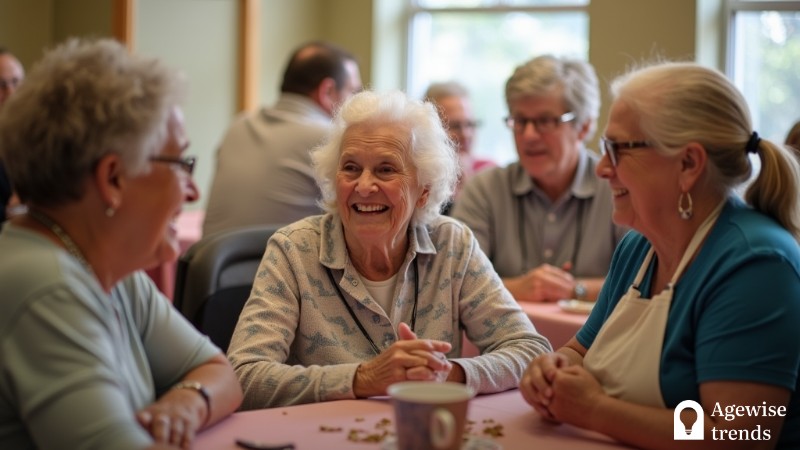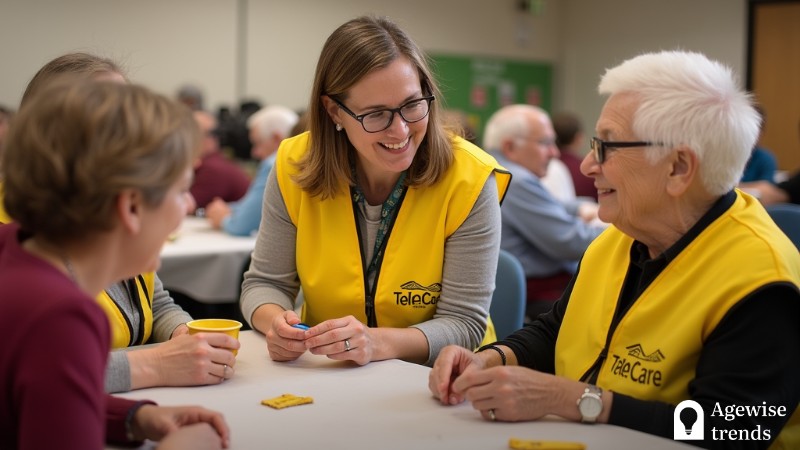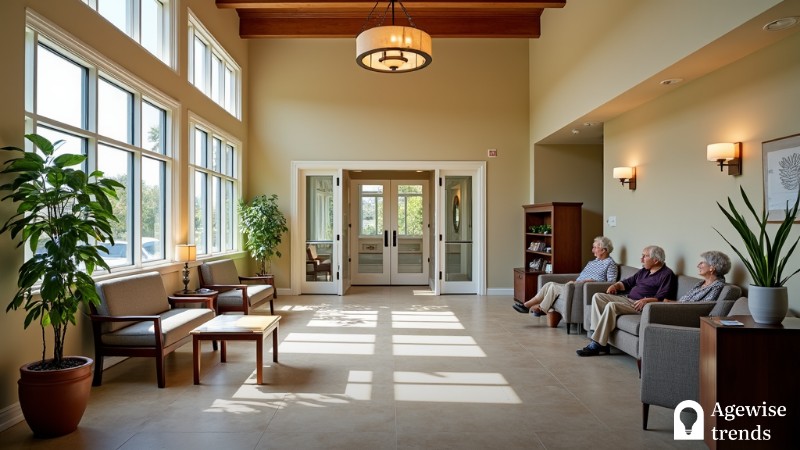The U.S. Department of Housing and Urban Development (HUD) has announced major funding efforts to make housing more affordable for seniors and improve access to supportive services. This includes a huge $40 million boost for service programs and nearly $97 million in grants to build new homes through the Section 202 Supportive Housing for the Elderly program. These steps are aimed at meeting the rising need for affordable senior housing and helping older adults live independently with dignity.
The program has been a key part of HUD’s mission to offer affordable housing to older Americans. Most people living in Section 202 housing have yearly incomes of about $15,000, ensuring they have safe, stable homes.
At the end of Biden’s term, HUD gave $97 million to 11 nonprofit groups to build 732 affordable homes for low-income seniors. Julia Gordon, Assistant Secretary for Housing and Federal Housing Commissioner, stressed the need for these efforts due to rising rents and more older Americans without homes. She stated, “Providing affordable and supportive housing for our nation’s seniors is more important than ever.”
Linda Couch, Senior Vice President of Policy and Advocacy at LeadingAge, noted the program’s goal of helping residents stay in their homes by connecting them to needed services. This shows the importance of both housing and services for addressing the needs of our aging population.
Key Takeaways
The U.S. Department of Housing and Urban Development (HUD) has announced major funding efforts to make housing more affordable for seniors and improve access to supportive services.
- HUD has allocated $40 million for service programs and nearly $97 million in grants to build new homes through the Section 202 Supportive Housing for the Elderly program.
- Service coordinators play a key role in connecting residents to essential resources like health programs, financial advice, and social services, improving their quality of life and helping them live independently with dignity.
- While recent funding initiatives are a step forward, advocates and policymakers recognize that more needs to be done to tackle the nation’s housing affordability crisis, including addressing rising construction costs, regulatory hurdles, and lack of service coordination in many affordable housing communities.
The role of service coordinators
Service coordinators are key to HUD’s plan for supportive senior housing. They help connect residents to essential resources like health programs, financial advice, and social services. Recently, HUD invested $40 million in these roles—the first new funding in over ten years, benefiting 107 properties nationwide.
Ethan Handelman, Deputy Assistant Secretary of Multifamily Housing Programs, highlighted how important these funds can be. He mentioned that these grants improve residents’ quality of life by making community-based services more accessible, helping them live independently and with dignity.
Research shows that service coordinators are effective. Studies by the Harvard Joint Center for Housing Studies and LeadingAge found that they reduce hospital visits for seniors by 18% and help manage disruptions, like those during COVID-19. Having service coordinators available helps communities meet residents’ needs better, supporting their independence longer.
Addressing broader challenges in senior housing
While the recent funding initiatives are a big step forward, advocates and policymakers know there’s more to do to tackle the nation’s housing affordability crisis. At a Senate hearing, E. Scott Turner, the Trump administration’s choice for HUD Secretary, called housing affordability a major issue for the country. He pointed out the need for a wide range of housing, from single-family homes to apartments and manufactured houses, to meet increasing demand.
The Affordable Housing Act, 2024 is more than meets the eye. Below are some of the key issues emanating from the provisions of the Act which may have challenges implementing the Housing Levy as envisaged by GOK.
A thread: pic.twitter.com/t8nqSRzNbf
— The Tax Lawyer® (@wakili_dennis) March 28, 2024
Linda Couch from LeadingAge is hopeful about working with Turner to preserve and grow affordable housing options. However, challenges like rising construction costs, regulatory hurdles, and the lack of enough service coordination in many affordable housing communities remain major issues.
The Affordable Housing Resident Services Act, introduced in 2024, aimed to tackle some of these problems by creating a grant program for service coordination in affordable housing. Even though the bill didn’t move forward, it shows ongoing efforts to make service coordination a regular part of affordable senior housing.
Empowering communities through collaboration
The joint efforts in housing development and service coordination show a strong dedication to improving the lives of senior citizens. For those working in senior living, community leaders, and policymakers, these programs offer a guide to meet the diverse needs of older adults.
Having service coordinators in affordable housing not only helps the residents but also strengthens the entire community. Staff and volunteers at senior centers can learn from these programs to improve their own initiatives and form partnerships that make more resources available to seniors. By working together with housing providers, healthcare services, and community resources, everyone can help create a better support system.














